Olivia Colman on Acting Opposite Best Actor Oscar Winner Anthony Hopkins in ‘The Father,’ ‘The Crown’ and Finding Fame in Her Mid-40s

The Crown star Olivia Colman says playing opposite Anthony Hopkins in the film "The Father" was like "working with your dream." Photo: Corina Marie Howell/August
Actress Olivia Colman, 47 and a former Best Actress Oscar winner (for The Favourite in 2019), was nominated for her second statuette — this time for Best Supporting Actress for The Father — this year. And while she didn’t win it, her co-star, Anthony Hopkins, 83, won the Oscar for Best Actor for his role in the film — eclipsing Christopher Plummer as the oldest person to win an acting Oscar. Here, we revisit our feature profile and interview with the actress about the film, acting opposite Hopkins and her incredible career from our February/March 2021 issue.
Olivia Colman has made an art of holding her fire. As The Crown’s second Elizabeth II, she quietly stole the show in her two-season term with a soft coup worthy of The Queen’s Gambit. While keeping her opinions and emotions under tighter lockdown than the Crown jewels, she could command a scene with the sheer power of observation. As prime ministers shuffled in and out of her chambers, a raised eyebrow or a crisp question was all it took to read her mind.
Up to a point. Up to the final episode of season 4 and, for those who never expected to see the Queen erupt, this is a spoiler alert: when Prince Charles corners her to whine about his marriage to Diana, she cuts him down with surgical precision, wielding her diction like a samurai on a schedule. But Colman’s real tour de force occurs earlier, in the Queen’s final showdown with her fallen prime minister. As Margaret Thatcher, played with towering hyperbole by Gillian Anderson, tumbles from self-righteous pride to teary self-pity, the Queen looks aghast. “Your first instinct as a person is often to act, to exercise power,” she declares. “Power is nothing without authority.” Then the death knell: “Perhaps the time has come for you to try doing nothing for once.”
It would be tempting to read the line as a comment on Anderson’s spectacle of overacting: try doing nothing. But Olivia Colman is far too nice for that. By all accounts, she is utterly uncalculating. The 46-year-old British actor — winner of an Oscar, an Emmy and three Golden Globes — has become a star without behaving like one. An actor’s actor. In a 2019 Vogue cover story that proclaimed she was “reinventing superstardom,” her peers scrambled for superlatives. David Tennant, her fellow detective in the British series Broadchurch, said, “Every part she plays fits her like a glove … as if she was born to play it.” Fleabag’s Phoebe Waller-Bridge called her “a f-cking Ferrari.”
Colman’s latest fan is French writer-director Florian Zeller, who cast her opposite Anthony Hopkins in The Father as the daughter of a man afflicted by dementia. “She’s pure instinct,” he says on the line from Paris. “Because she has a very open heart, she understands everything immediately without being forced to talk or think. As soon as she’s on set, something changes in the general atmosphere. She is so generous, so easy to work with, everyone becomes nicer.”
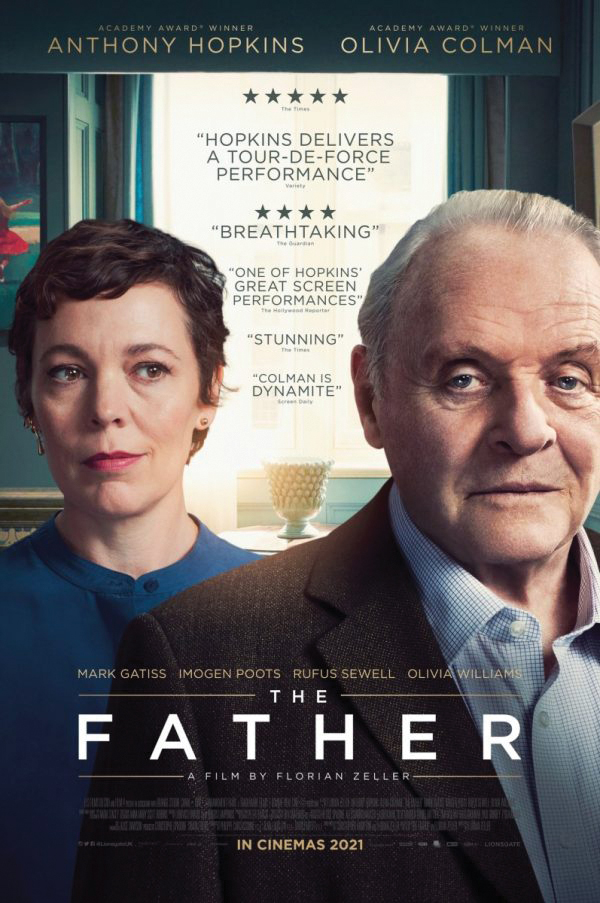
It’s routine for directors to rave about actors, but Zeller’s amazement seems authentic. “As you meet her,” he says, “you love her, and it’s the same on screen. You feel empathy. I don’t know how she does that. It’s just the way she is. It’s like miracles and miracles every day. I profoundly believe the world would be a better place if everyone was a bit like her.”
From the moment I first meet her on Zoom, I see what he means. The cheery smile, the direct gaze, the casual candour — she makes an immediate connection. Wearing a grey sweater, her hair pulled back with no sign of makeup, Colman sits upright on a couch in the East London house she shares with writer husband Ed Sinclair, three children and two dogs. I open with a tangled question about acting and how her character in The Father has to act, pretending everything is normal while trying to manoeuvre her unwitting dad into a nursing home. Colman laughs. “It’s not great for you, but I’m terrible talking about acting. Sorry!” She goes on to say how effortless making The Father was, but it seems more a modest confession than a boast. “This was an exceptionally good script. You turn up, say the words, and your job’s done for you. There wasn’t much research or work that went into it.”
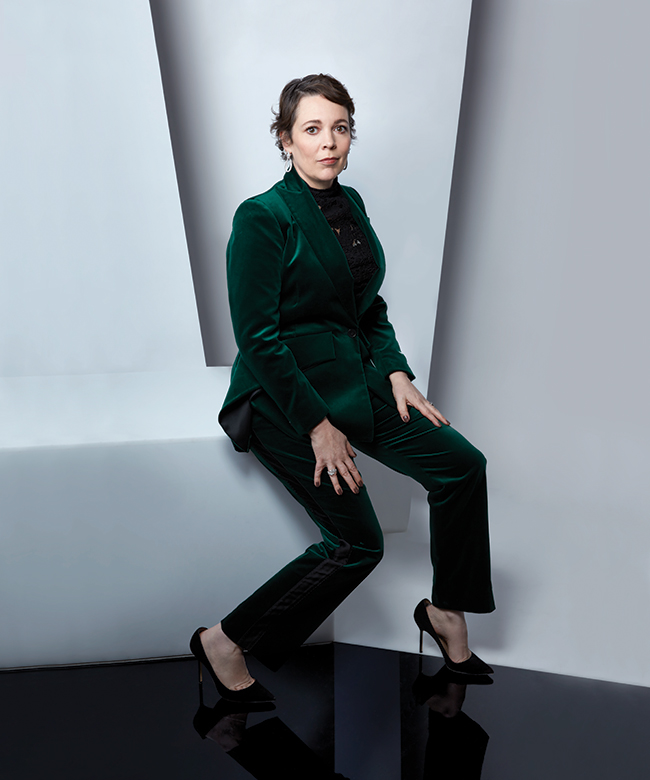
Slicing consonants with the quick, gem-cut elocution of her character in The Crown but without the 24-carat accent, Colman explains her method or lack of it. “It was sitting in front of [Anthony] Hopkins. He does his thing. You can’t help but react to it. Acting is meant to be reacting rather than laying something on top. It sounds awful to say. But it’s all quite easy. We’re enjoying ourselves, saying great words. Imagine, working with your dream! Waking up every morning going, ‘Oh, goodie, I get to do another scene with Tony Hopkins today!’ He was everything I wanted him to be. And between scenes he’d just go, ‘Are we lucky? Yes! We are lucky!’”
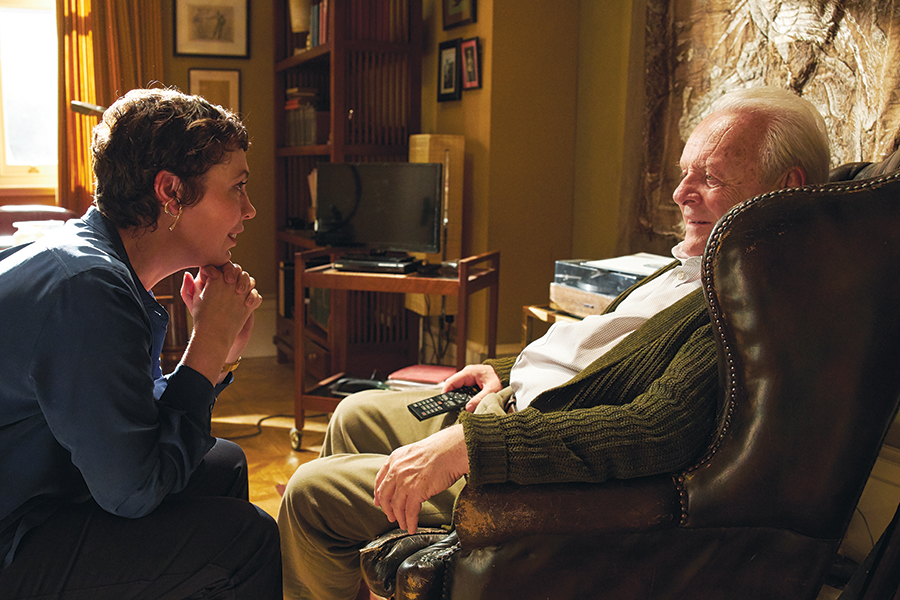
Adapted from Zeller’s play, The Father is an exquisitely sad, harrowing and darkly comic portrait of the pain suffered and inflicted by a patriarch losing his grip. His dementia is a double-edged sword. When Anne, his long-suffering daughter, isn’t busy empathizing with him, she’s being bullied by him. Colman has a supporting role on so many levels, it’s more like an anchoring role.
Hopkins’ character, also named Anthony, dominates every scene as a bewildered force of nature with a bad-boy wit that ricochets between charm and cruelty. Only the demented get to joke about dementia, and he has all the best lines. Flirting with his freshly hired young caregiver (Imogen Poots), he confides: “My daughter has a tendency to repeat herself. But you know what it’s like. It’s an age thing.” Then his humour turns venomous. As he ridicules the caregiver for “laughing inanely,” we watch the silent terror mount in Colman’s eyes. Her nervous laughter is broken by tears, a hand flies up to cover her face and she forces her smile back into place. It happens all at once, like a magic trick. She’s “crying and smiling, hiding her emotions to put the caregiver at ease,” says Zeller, “and everything is on her face — three levels of understanding in every frame.”
When I ask her where she found those emotions, Colman says, “To watch someone you love, who was larger than life and powerful and in charge, crumbling and diminishing, is an awful thing. At its extreme end, to know that they don’t know who you are. Memories are all that make us and to not have them anymore … It’s hard to put into words. I’m of a generation that has to be a parent to both sides. I’ve got children I look after. My parents are getting old. Old age is cruel and rude, and we’re not great in the Western world at looking after our elders … I’m going off on a tangent. I’m sorry. I do that. I go off on a ramble. I can’t remember what you asked me now.”
Born Sarah Caroline Colman in Norfolk, her father was a surveyor, her mother a nurse specializing in geriatrics, which gave her some early insight into dementia. “She had limitless patience,” Colman recalls, “which is the received way of doing it now. Instead of saying, ‘No, no, your wife died,’ and make them relive this every time they forget, you go, ‘It’ll be okay. They’ll be back soon,’ and move along. Otherwise, you’re jarring and upsetting people every time they forget. In that respect, I understood what Anne was trying to do.”
Ironically, as his memory erodes, it’s Anthony who glimpses the true horror of his situation, while Anne soothes him with the cosy illusion that everything is fine in that oh-so-English art of denial. “I think that’s deep-seated in our history,” says Colman. “I don’t know where that comes from. It’s quite nice. It’s possibly not that healthy. I don’t know. I’ve never really looked into it. It’s quite a nice way of getting through things, I think.”
Remarkably, Zeller first wrote The Father as a French play, Le Père (2012), which was translated for the London stage by British playwright and Oscar-winning screenwriter Christopher Hampton (Dangerous Liaisons), who co-wrote the film version. But Zeller says he’s always seen it as “an English play written in French — the very first time it was on stage in London, I had the feeling that this is the language of that play.”
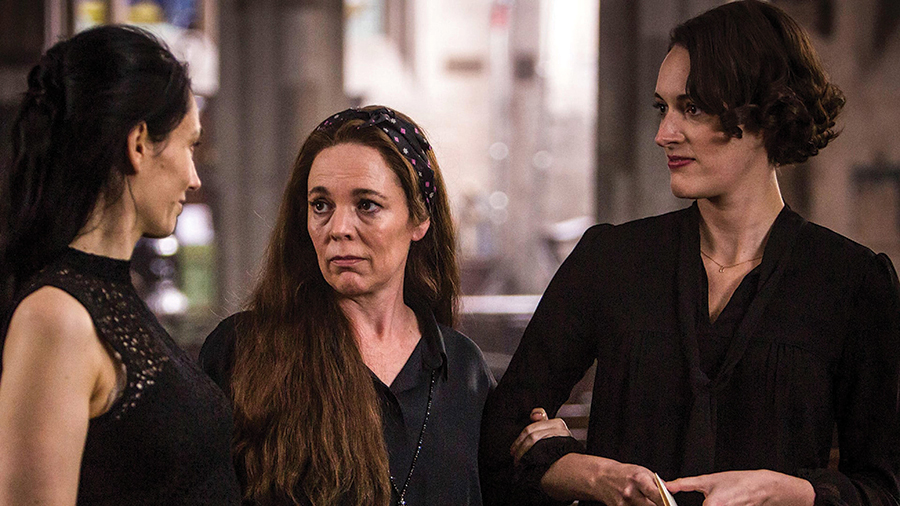
Colman is rooted in the theatre, from her stage debut at 16 in the title role of The Prime of Miss Jean Brodie to her graduation from the Bristol Old Vic Theatre School. And she has acted for two decades in British television, as a stoic detective in Broadchurch, a pregnant spy in The Night Manager and Phoebe Waller-Bridge’s buoyant, oversexed godmother and eventually her stepmother in Fleabag.
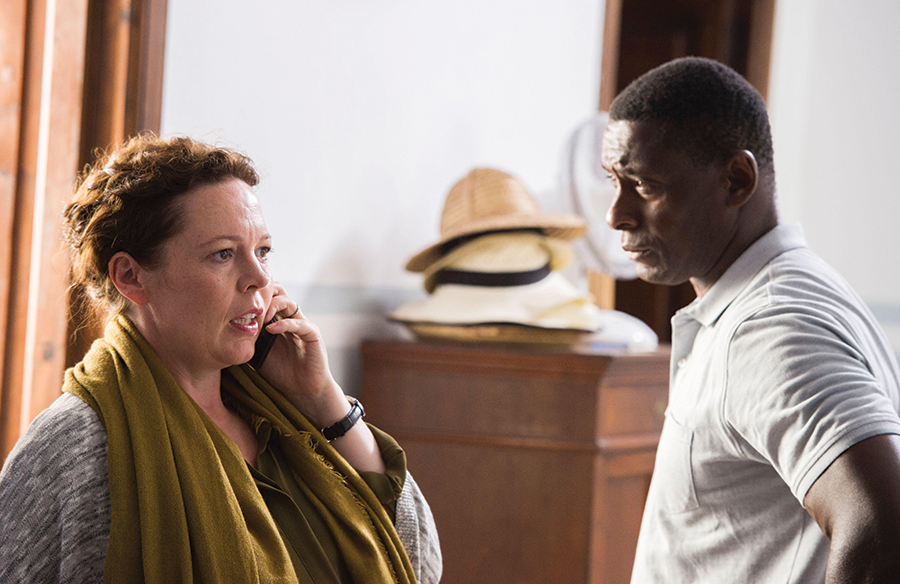
But for all her accolades as a “character” actress, her stardom seemed to come out of nowhere at the 2019 Oscars. When she won Best Actress for her role in The Favourite as Queen Anne, an infantile, gout-ridden 18th-century monarch, no one seemed more surprised than she was. Bookended by standing ovations, her acceptance speech was a freeform explosion, careening from flustered shock to humble thanks to punk mischief, sticking out her tongue when she got the cue to “please wrap up.”
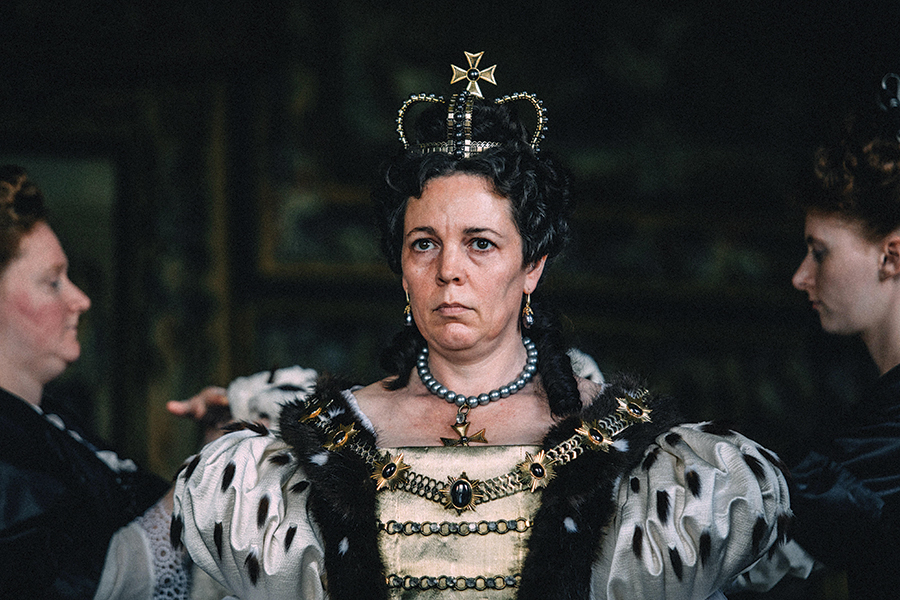
Never an ingenue, Colman is grateful she didn’t find fame until her mid-40s. “I’m pleased it happened a bit later. Too much attention too young must be really difficult to cope with and stay level-headed. Lots of amazing people do manage to keep it together. Also, when you get more work when you’re older, they’re not comparing me to a young me.”
What gives Colman’s acting such power is an emotional fragility that underlies even her most forceful characters. “I’m not terribly thick-skinned,” she admits. (Ever since being stung by some online comments, she has insulated herself from the internet.) “I don’t have any social media. I don’t look at it. But through doing all the press for The Father, I’ve discovered that Tony does. He’s on, I don’t know what they’re called … Instagram! He goes, ‘We’re in this pandemic worldwide. Come on, let’s have a laugh.’”
Like Hopkins and so many theatrically trained Brits, Colman doesn’t indulge in method acting. “She’s not the kind who needs to be in character all the time,” says Zeller. “When you say ‘Action!’ she’s capable of going profoundly into the emotion. And the minute you say ‘Cut!’ she’s back into her joyful energy.”
As someone who once cleaned floors for living, Colman takes nothing for granted. Asked about the joy of making The Crown, she first cites steady employment. “It’s lovely to know you have a job for two years. And to find out everyone is lovely. You think, ‘Great, I’m just going to rock up and have a lovely time!’”
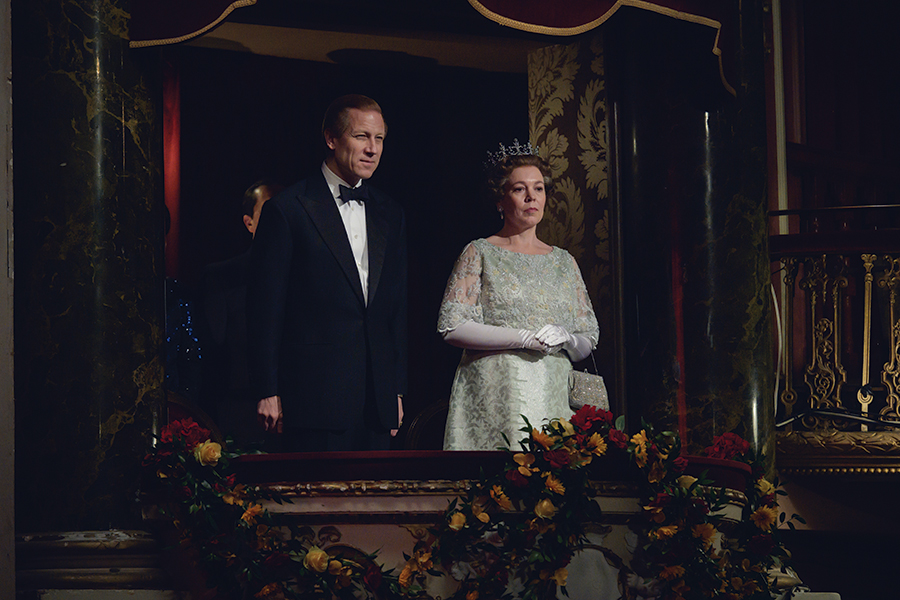
With Imelda Staunton taking over her character in season 5 of The Crown, Colman will go to the dark side in Landscapers, a four-episode HBO series scripted by her husband, based on the true story of Susan and Christopher Edwards, a British couple serving life sentences for robbing and killing her parents in 1998. “My husband’s been writing to them,” says Colman, who will play Susan. “You think, ‘Oh they’re bad people, they killed their parents and buried them under the garden,’ but actually the more you find out about it, the more you think, ‘Well, no one missed their parents. They can’t have been that nice.’”
After almost imploding with restraint in The Father and “having done two years of the Queen mainly listening,” Colman can imagine getting “quite excited about having a rant.” Or playing a pure villain. Fleabag’s godmother artiste “was pretty vile,” she allows, “but also quite funny. I’d love to play a proper baddie. Every time there’s a Marvel film, I phone my agent and go, ‘Please, I’d like to be a baddie!’”
Bring it on. What the world needs now is Olivia Colman as a wicked queen with superpowers and a licence to kill.
A version of this article appeared in the Feb/March 2021 issue with the headline “The Father’s Daughter,” p. 43.
RELATED:
The Father and Other Oscar-Pedigree Films That Capture the Reality of Dementia